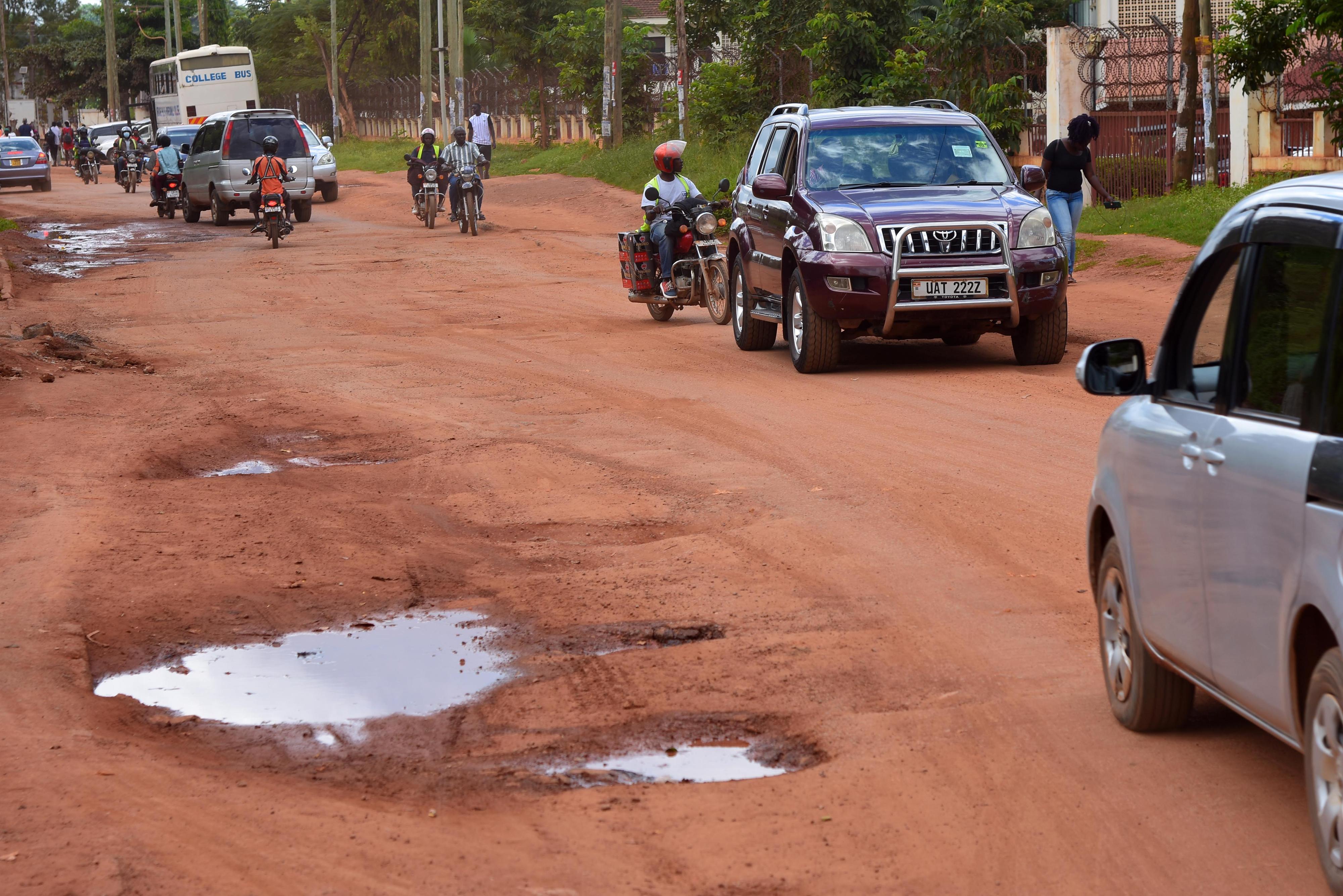Prime
How govt borrowed Shs7t in seven days

Finance Ministry Permanent Secretary/Secretary to Treasury Ramathan Ggoobi addresses the media in Kampala recently. PHOTO/FILE
What you need to know:
- When the World Bank announced that it was suspending new funding to Uganda over the enactment of the anti-homosexuality law, the Finance ministry said government would revise the National Budget. This did not happen. Instead, the country has gone on a borrowing spree.
Uganda faces an increasingly tough task raising cash for debt repayments even as the country has gone on a Shs7 trillion borrowing spree to fund different things, including items that have been dubbed as wastage.
Even as the Executive urged Parliament to allow it to borrow more from domestic sources, the technocrats at the Finance ministry raised the red flag, thanks to the challenge of debt repayment.
In the November 28 statement that accompanied the more than Shs3.5 trillion supplementary request, Mr Ramathan Ggoobi—the Finance Ministry Permanent Secretary/Secretary to Treasury (PSST)—warned of [the] government’s failure to finance the country’s development and instead focus on debt payment.
“The debt service costs resultant from borrowing potentially reduce the discretionary resources available to finance the country’s priority development activities and critical services in the subsequent financial years,” the statement reads in part.
“That notwithstanding, my ministry is committed to containing the rate of increment of debt servicing costs through enforcement of the commitments in the fiscal consolidation agenda which focuses on: a) Increasing domestic revenue mobilisation; b) Reducing borrowing and improving allocative efficiency of the budget; and c) This will require repurposing the budget from some activities to accommodate interest payments,” the brief to Parliament adds.
At the end of June, Uganda’s public debt stock stood at Shs86.7 trillion ($23.6 billion) up from Shs78.8 trillion (20.9 billion). Of the stock at the end of June 2023, Shs52.2 trillion was external debt, while Shs34.5 trillion was domestic debt. By June, Uganda’s debt-to-GDP ratio was 46.2 percent.
With the borrowing since June, Uganda’s public debt is north of Shs93 trillion.
More borrowing
When the World Bank announced that it was suspending new funding to Uganda over the enactment of the anti-homosexuality law, Henry Musasizi, the junior Finance minister, said the government would revise the National Budget. This did not happen. Instead, the country has gone on a borrowing spree, with Parliament authorising close to Shs7 trillion worth of loans in less than one month. The World Bank is yet to lift its suspension.
Some of the major loans that have been cleared by the House recently include Shs3.5 trillion government is borrowing from local commercial banks; Shs1.2 trillion from the World Bank for climate-smart agriculture projects; and Shs554.6 billion from China to finance the e-government Internet infrastructure project phase.
The government was also authorised to borrow $295m (Shs1.1 trillion) from Islamic Development Bank and $30m (Shs112b) from OPEC Fund for International Development to finance the upgrading of national roads. The government will also provide an additional $22m (Shs82b) for land acquisition.
Some of the items the government has heavily borrowed for are in the much-needed sectors, especially funding infrastructure. One of the loans, for example, will fund the reconstruction of Masaka-Mutukula Road (89.5km) and rehabilitation of Nyendo-Villa Maria Road (11km), upgrading of 3.5km access road to the UPDF barracks in Masaka, 3.5km access road to Masaka Industrial Park and additional scope of 28.5km for Kikagati-Kafunjo Road at Shs692.680 billion, thus bringing the total amount of loans passed within a week to around Shs6.868 trillion.
The government will also spend at least Shs2 trillion owed to the Bank of Uganda.
No choice
External loans, according to the government, are currently very expensive with interest rates of about 10 percent per annum in foreign currency. This makes the debt service cost of external loans unsustainable, in terms of fiscal impact on the budget, exchange rate, and availability of foreign exchange reserves that are necessary to cushion the economy against shocks and speculation.
In November 2022, for example, the House approved a request by the government to borrow €273.03m (Shs1.1 trillion) from Standard Chartered Bank. Subsequently, a parliamentary report indicated that Standard Chartered Bank could not disburse the amount and instead proposed different financing terms higher than what was negotiated and approved by Parliament.
“The committee wonders how the bank could just freely walk away from its agreement. The committee recommends that sections of the agreement that provide for consequences for breach of contract be invoked to force the bank to adhere to the agreement and compensate [the] government for wasted time and resources that were invested in negotiations and agreement, “ the legislators noted.
Measures to reduce cost of debt service
• Curtailing supplementary requests to only those that are critical for the economy and security and, those of emergency nature.
• Ensuring effective implementation of the Domestic Revenue Mobilisation Strategy to boost the capacity to increase domestic revenue collection
• Postpone new borrowing—both external and domestic except for strategic sectors of the economy to support ongoing investments in oil and gas, mineral development, tourism, agro-industrialisation, and the knowledge economy.
• Expand the scope of fiscal consolidation to include expenditure allocations in projects, and streamline routine activities of MDAs which are now under projects into non-wage activities of respective votes.
• Stop leakages of public resources across [the] government. The [Finance] ministry has kick-started a cleaning up exercise commencing with the payroll. An audit has been finalized, which also verified all the public servants. Government will subsequently embark on verification of pupils in UPE and USE, as well as other Government of Uganda-owned learning institutions; comprehensive assessment of ongoing project performance; and other big-budget areas
• Expedite implementation of the Public Investment Financing Strategy (PIFS) with a view of accessing new sources of financing.
Source: Finance Ministry November 2023




